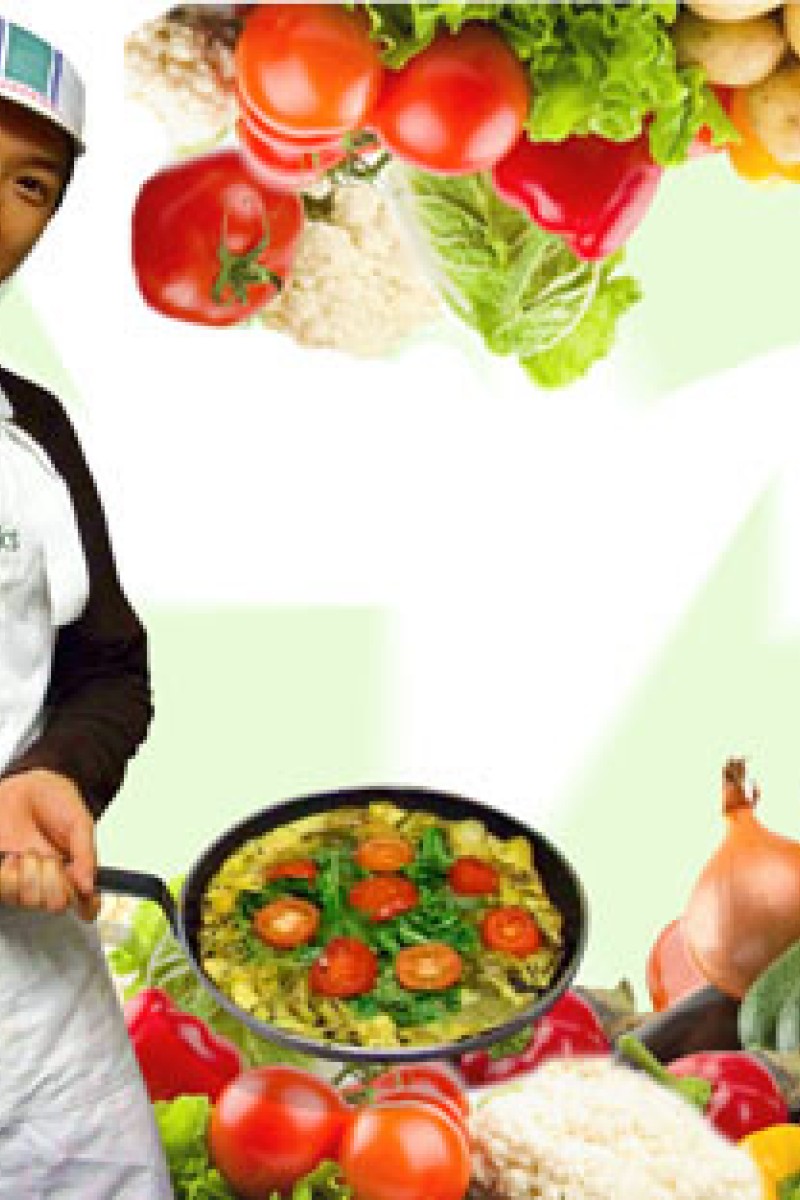 Kelvin Cheung Ling-hon, founder of FoodCycle, a youth-led charity based in Britain, dishes out healthy three-course meals to the poor
Kelvin Cheung Ling-hon, founder of FoodCycle, a youth-led charity based in Britain, dishes out healthy three-course meals to the poorCheung, a graduate with a master's degree in development studies from the University of London, wanted to make a difference in his community.
"In college, it's all about theories and concepts. I was impatient, I wanted to do something for society," he says.
He found inspiration in the Campus Kitchen Project hunger relief programme in the US. For the past two years, Cheung and his team have been working closely with university volunteers in the UK to serve low-cost, nutritious meals to people who are too poor to afford a healthy diet.
"Good nutrition costs money," Cheung says. "It's often a tough choice. If you have only GBP2 [HK$24.50] to spend on food, will you get four apples or a huge bag of frozen French fries?"
Sundays are hectic for FoodCycle volunteers. At 2pm, students at participating universities gather at kitchens in community halls to prepare yummy three-course vegetarian meals. They use vegetables, eggs, beans and cheese which they collect from local food stores, farmers' markets and supermarkets. A lot of produce is dumped by stores because it fails to meet aesthetic requirements.
According to a report by recycling group Waste and Resources Action Programme, shops in Britain waste 1.4 million tonnes of fresh food each year. That is enough to feed more than 17 million hungry mouths.
Cheung's volunteers take the "ugly" produce, peel away the blotchy skin from apples and bananas and use the fruit to make cakes and pies. Nothing goes to waste.
"We try to make the whole process as much fun as going to the movies," Cheung says. "We want to give young people the chance to get involved in a community project - and have fun doing it."
Volunteers are drilled in hygiene and food safety procedures. Then it's up to them to do their best with the available ingredients. At times they may run into trouble: ovens may break and other smaller kitchen mishaps might occur.
"They have to find their own way around," Cheung says.
From just a few kitchens at universities in London, FoodCycle now delivers meals to 12 cities, including Bristol, Leeds, Liverpool and Edinburgh. They communicate with recipients via social media like Facebook. "We don't create the demand. It's already out there," Cheung says.
In just two years, FoodCycle has saved 4,000 kilograms of food from waste to serve 8,000 three-course meals. It was named best charity this year by Charity Times for empowering young people to fight both poverty and waste.
"You don't need to create something new to be successful," Cheung says. "Just do what you think is right."
Find out more about FoodCycle at foodcycle.org.uk. For its recipes, visit foodworksuk.blogspot.com
